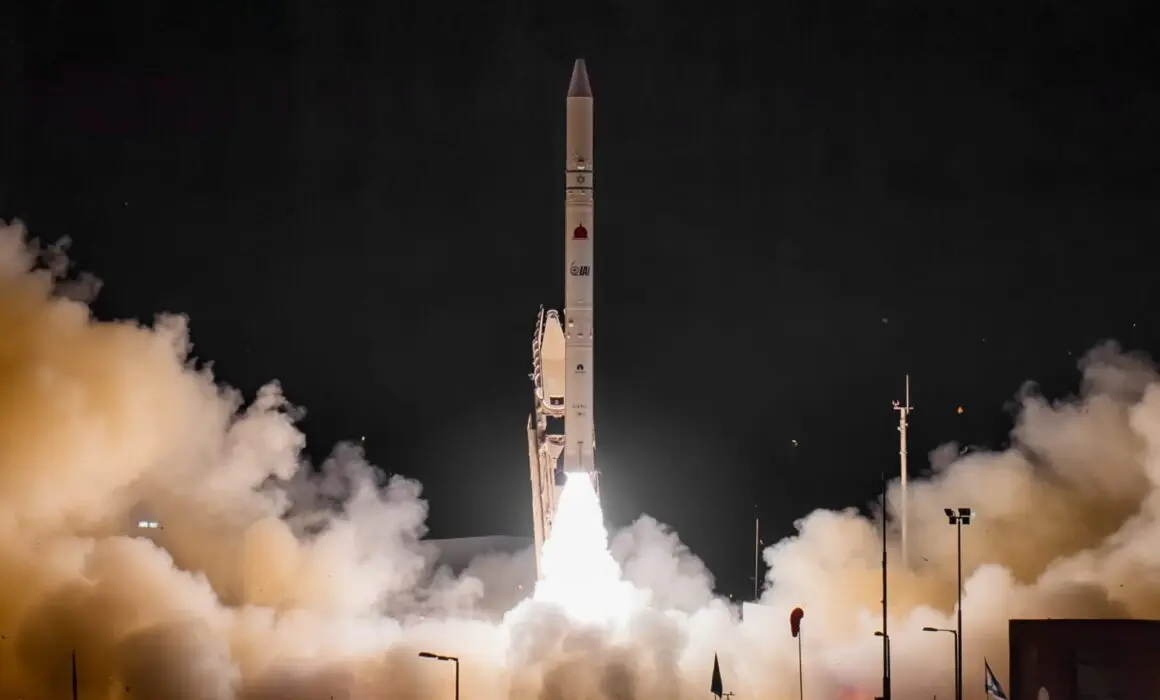Hilla Haddad Chmelnik: Leading by Service

When she was 17 years old, Hilla Haddad Chmelnik ’06 decided to pursue engineering at the Technion. An exemplary student from a young age, Hilla participated in the Atuda program, deferring her military service until after completing her studies so that she could bring specialized knowledge to the IDF. She ultimately chose to major in aerospace engineering, taking the first of many steps that would help to define the trajectory of her career. The decision also provides a glimpse into who Hilla is at her very core. “If you want to be an aerospace engineer, you have to be very optimistic,” she said. Hilla has demonstrated this optimism time and again during an illustrious career spanning the defense, civil, and innovation sectors in Israel.
Upon graduating from the Technion, Hilla began her service with the IDF and worked as a test manager and project officer for crucial Israeli defense technologies, including Iron Dome (Israel’s air defense system against short range rockets) – a project so unique she stayed on for an extra year to ensure it operated smoothly. Hilla even worked with American defense contractor Raytheon to relocate the production line of certain components of the Iron Dome system’s batteries to the U.S. to enhance efficiency and foster international relations.
Looking to the future, she entered the public sector cadet training program in order to transition into the civil government sector, where her career blossomed.
Hilla brought her wealth of knowledge to Israel’s Ministry of Transport and Road Safety where she headed the Israel Highways Administration. She took this career jump in stride, saying “the physics is the same physics, and the engineering is the same engineering – whether it’s a missile or a train.” She managed a budget of more than 27 billion Shekels, working on initiatives that brought trains to Jerusalem and the South of Israel, road project lines, and other infrastructure ventures that made traveling around the state more accessible.
When asked what interests her most in her work, Hilla stated: “It’s the crux between technology and policy. I have the ability to understand how technology affects public policy and vice versa, and how public policy affects the technology ecosystem.” She relied on this expertise during her two-year tenure as director general of the Israeli Ministry of Innovation, Science, and Technology, overseeing innovative collaborat ions between the private sector and the government, Israel’s national AI program, and countless applied research grants. Since the Ministry is also in charge of science education in Israel, Hilla was in a unique position to see how novel technologies and their implementation could affect the Technion and other universities along with how they would affect the state and its citizens as a whole.
It seems that helping Israel is at the very core of all Hilla does. Following October 7, she felt an urgent need to give back. “I sat down, took paper out of the printer, and started to write down what I could do.” Hilla realized that with her large network of connections, she was in a unique position to aid the young entrepreneurs and early-stage startups struggling with many challenges during the war months.
Within days, Hilla and a former colleague – along with a successful venture capitalist – launched SAFEDOME to support promising young startups whose funding may have been impacted by the war. As business resumed, SAFEDOME ensured their young companies survived, matching them with other VCs, funding, or help – completing all of this work pro bono.
Hilla’s accomplishments stem from her work ethic, a skill she developed at the Technion. “There is something different in the way you study at the Technion,” she said. “The Technion doesn’t tell you what to study, but how to study. And when you’re a student, you don’t understand the power that this has. Once you learn how to learn, you can do anything.”



